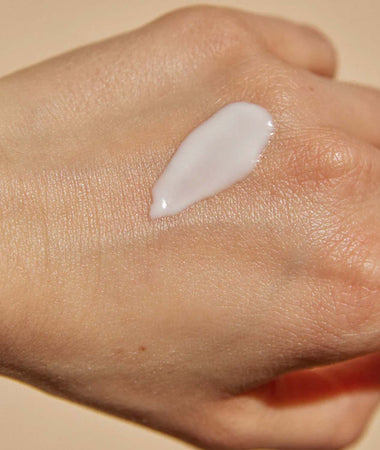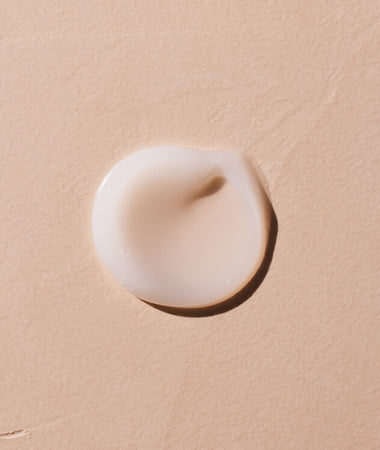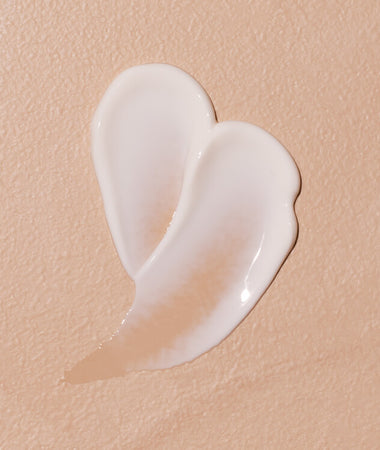
How To Reduce The Appearance Of Stretch Marks During Pregnancy
We firmly believe that nothing makes you feel more like a woman than being pregnant. You’re growing a new life inside you!
Your body is changing to make that possible. You’re preparing yourself mentally and physically to love and nurture your new little one into a happy and healthy baby... What could be better?
But some of the changes that come with pregnancy can be less than appealing. Stretch marks are one such change that we’re sure you’d rather do without.
What exactly are stretch marks? How do they form? And, most importantly, you’re probably wondering how to reduce the appearance of stretch marks during pregnancy.
The baby experts at Mustela are here to answer your questions about stretch marks and give you pointers for treating them. Let’s jump in.

What Are Stretch Marks And How Do They Form?
Stretch marks are basically small scars located in the middle layer of your skin (dermis) that are visible in the top layer of skin (epidermis). They form when rapid weight gain or hormonal changes stretch the skin beyond its ability to repair itself. That’s why they’re called stretch marks.
Your skin has an amazing ability to stretch and adapt thanks to its collagen and elastin fibers. But when your skin stretches too fast or too far, it can tear slightly. When this happens, your body will immediately start working to heal the new scars. Despite our body’s natural defense mechanisms, small scars can still show up once everything is healed.
Any sort of quick weight gain (pregnancy or not) or rapid growth spurt (think teenagers!) can lead to stretch marks, which means stretch marks aren’t just for pregnant women
Stretch marks are most often associated with pregnancy because pregnancy hormones, like cortisol and estrogen, reduce the activity and effectiveness of the fibroblasts in your skin. This, in turn, reduces the collagen and elastin that give your skin its stretchiness. Couple that with your growing belly, thighs, and chest, and conditions are just right for stretch marks to form.
Every woman’s body and every pregnancy is different, but if you do develop stretch marks, you’ll probably start noticing them at the end of the second trimester or sometime during the third trimester. They usually form on a pregnant mom’s stomach, thighs, bottom, hips, and chest.
Are Stretch Marks Painful Or Dangerous?
If you’ve never had stretch marks before, you might wonder if they’re painful or dangerous. The good news is that while they’re unsightly, stretch marks are neither painful nor dangerous.
In fact, the majority of women will get stretch marks during their pregnancy (sorry to break it to you). And they’re no worse for the wear!
If you have the urge to scratch your stretch marks, this is also common. Itchy stretch marks probably mean you have dry, itchy skin.
But another cause of itching is a pregnancy rash called PUPPP or PEP. This itchy rash begins in stretch marks and spreads to other areas. While it’s fairly common, doctors aren’t quite sure what causes PUPPP.
Regardless, this annoying rash is harmless to both mom and baby and goes away by itself within a couple of weeks after delivery.
But enough of the technical stuff! Let’s get to the best ways to reduce the appearance of stretch marks during pregnancy.
How To Reduce The Appearance Of Stretch Marks During Pregnancy
Ben Franklin once said, “An ounce of prevention is worth a pound of cure.” And while Ben probably didn’t have stretch marks in mind when he said it, we couldn’t agree more. The most powerful way to reduce the appearance of stretch marks is to treat them early, before they even appear, and often.
This is important because once stretch marks have formed, they are more difficult to get rid of. So, as soon as you know you are pregnant, start putting the tips we’ve provided below into practice.
1) Eat A Healthy Diet
Eating a healthy diet is a great first step towards reducing the appearance of stretch marks during pregnancy. Remember, stretch marks form because of rapid weight gain. That weight gain can’t be prevented—you are carrying a baby after all—but you can work to keep it within healthy limits.
We recommend a balanced diet that includes:
- Plenty of fruits and vegetables (at least 4 servings a day)
- Whole grains like oatmeal and wheat bread (6-11 ounces a day)
- Lean protein like chicken, fish, and beans (3 servings a day)
- Dairy products for calcium (1000 mg a day)
- A prenatal vitamin to fill nutritional gaps
Try to keep sweets and sugars to a minimum to minimize nausea. And because every woman—and every pregnancy—is different, be sure to talk to your doctor about a diet that’s right for you and your baby.
2) Hydrate Your Skin Twice Daily

A great way to reduce stretch marks during pregnancy is to keep your skin hydrated. You’re likely used to doing that with your face and neck, but you may have to start hydrating other parts of your body as well.
We find that the best solution is to apply an all-natural Soothing Moisturizing Balm to your stomach, hips, thighs, and chest at least twice a day. Hydrating balms and creams work by increasing your skin’s elasticity. This allows your skin to expand and grow without tearing and forming stretch marks.
Make sure you choose a balm that is safe for pregnant women and has been proven safe for both mom and baby. For the best results, apply the moisturizing balm after your shower to maximize your skin’s ability to defend against stretch marks.
3) Drink Plenty Of Water
You’ll hydrate your skin from the outside with a moisturizing balm, but you should also hydrate your skin from the inside-out. That’s right, we’re talking about drinking lots of water!
Staying well-hydrated helps your entire body work like it’s supposed to — and that includes your skin. Drinking plenty of water helps your skin cells function correctly, repair themselves, and ward off (or recover from) stretch marks.
If you find that you can’t quite drink the recommended eight glasses of water each day, try sipping on hot tea throughout the day or whipping up your own lemon water or cucumber water to keep things interesting.
4) Apply A Stretch Marks Cream Or Oil

The best way to prevent stretch marks during pregnancy is to use a specially formulated Stretch Marks Cream or Stretch Marks Oil. These products feel great when applied and they go a long way toward keeping your skin soft, supple, and stretch mark-free during pregnancy.
We suggest a product with natural ingredients like avocado peptides, beeswax, shea butter, pomegranate, and baobab. Bao-what? Yes, some of these ingredients sound sort of strange.
But though you may have never heard of them before, they are outstanding at helping your skin withstand stretching, improving its elasticity, and keeping it feeling soft, smooth, and silky.
5) Exfoliate Stretch Mark-Prone Areas Once A Week
To get the most from your moisturizer and your stretch marks cream or oil, be sure to exfoliate your stomach, hips, thighs, and chest once per week.
Exfoliating removes the dry and dead skin cells that may prevent your moisturizers and creams from penetrating to the lower layers of skin. Exfoliation also promotes the growth of new skin cells which can help keep your stomach, hips, thighs, and chest soft, supple, and stretch mark-free.
There are a number of natural herbs and ingredients that can be used as exfoliants. Our favorite natural exfoliants are baking soda and witch hazel. These ingredients can be applied directly to your skin and are gentle enough that they won’t damage sensitive skin.
For an added exfoliating boost, rub stretch mark-prone areas with baking soda during your shower or apply witch hazel immediately after.
6) Massage Your Skin To Reduce The Appearance Of Stretch Marks During Pregnancy
Moisturizers and stretch mark creams only take a few minutes to apply. But if you take just 10 more minutes to massage these products into your skin, you can supercharge your body’s stretch mark prevention potential.
Gently massaging stretch mark-prone areas offers four benefits:
- It keeps skin supple and elastic
- It pushes the cream deep into your skin where it can do the most good
- It breaks up any stretch marks that may have started to form
- It directs blood to the skin to keep everything healthy
To get the most from your stretch mark massage, we recommend first applying a healthy dollop of cream to your fingertips. Then, massage this cream into your skin using gentle pressure and small circular movements. Do this every day for amazing results.
How To Reduce The Appearance Of Stretch Marks After Pregnancy
If you’re already suffering from stretch marks, don’t worry. Reducing the appearance of stretch marks after pregnancy is not impossible. Here are our best treatment tips.
1. Apply An Ultra-Targeted Treatment
An ultra-targeted treatment is your best option for healing stretch marks after pregnancy. It is cost-effective, easy to apply, and doesn’t require time-consuming doctor visits. And trust us, you’re going to be busy enough once your baby arrives.
We recommend an all-natural, specially-designed Stretch Marks Serum. This unique serum includes Elastoregulator® that helps to revive the skin’s elasticity that was damaged during pregnancy. A good stretch mark recovery serum also contains micronutrients that will help your body break up scar tissue.
2) Stay Active
Slowly but surely resuming physical activity after giving birth is a good idea for many reasons! In addition to being good for you and helping you lose baby weight, it may help repair your stretch marks.
Any sort of exercise will strengthen and tone your muscles, which, in turn, helps to tighten loose, stretch-marked skin. Consider yoga, walking, swimming, dancing, or riding a bike.
Even if it’s hard to notice the effects of exercise on your skin, being active will help you feel great. And when you feel good, you look good!
3) Use Invasive Treatments Only As A Last Resort
For stubborn stretch marks, you might want to consider invasive treatments like microdermabrasion and laser therapy. But try everything else first and use these treatments only as a last resort.
Microdermabrasion is essentially a super powerful exfoliant. It uses a spray of microcrystals to remove the outermost layer of dry, dead skin cells. Laser treatments also use small bursts of light directed into the middle layers of skin.
Both treatments, while uncomfortable, will reduce the appearance of stretch marks by revealing younger, healthier skin.
4) Take Care Of The Rest Of Your Skin
When you’re on a mission to eliminate the stretch marks left over from pregnancy, it’s important not to neglect the rest of your skin in the meantime! Your new-mom body (and your skin!) is still going through a lot and under a lot of stress.
As you figure out breastfeeding, don’t forget to take care of your tender nipples with Nursing Comfort Balm. Also, show some TLC to your breasts, neck, and neckline with Mustela’s Bust Firming Serum, which hydrates to tone and give your skin a firmer look and feel.
5) Be Patient
As much as we wish stretch marks would go away with the snap of our fingers, that’s not quite how it works.
Take steps toward eliminating the stretch marks you developed during pregnancy, but remember to be patient! Even with the best of treatments, they won’t disappear overnight.
Natural Skin Care During Pregnancy
We’ve given you several tips for treating stretch marks. But these pesky lines are just one of the changes your skin undergoes during pregnancy. And skin care is much more than only taking care of stretch marks!
You may notice that your skin is drier than it’s ever been. You can blame pregnancy hormones for this.
In addition to protecting and moisturizing your skin with Soothing Moisturizing Balm, treat dry skin by washing your face and showering with lukewarm (not hot or cold) water, avoiding rough fabrics, and exfoliating no more than once per week.
The other thing you’ll notice about your pregnancy skin is that it’s especially sensitive to the sun. That doesn’t mean you can’t enjoy the great outdoors or a day at the beach; just take extra protective measures.
Armor up: wear sunscreen and a hat, stay in the shade, up your moisturizing game, and drink extra water.
Finally, when considering what products to use to care for your skin, make sure you’re treating your skin with natural ingredients and not chemicals. This will also be important when it comes to the products you put on your baby’s delicate skin. Avocado oil is one natural ingredient that is great for both you and your baby!
Mustela is committed to skin health, and we use safe, effective, and natural ingredients in our products. Check out what we put in our products (and what we don’t!) here.
Show Your Body Some TLC
To care for your skin and fend off stretch marks, follow the tips we listed in this article and lather up with Stretch Marks Cream or Stretch Marks Serum.
In the end, stretch marks are just one small result of the wonderful miracle of pregnancy and the new life growing inside of you. When you’re working to reduce the appearance of stretch marks, remember to have patience and show your body some extra TLC. Growing a baby is no easy task!
- reg.
- $28.00
- Sale price
-
$28.00
- reg.
-
reg.
- Unit price
- /per
- reg.
- $16.00
- Sale price
-
$16.00
- reg.
-
reg.
- Unit price
- /per
- reg.
- $23.00
- Sale price
-
$23.00
- reg.
-
reg.
- Unit price
- /per
Suggested Articles

6 Tips For Finding The Best Maternity Clothes

7 Breastfeeding Myths & Realities

The Best Postpartum Care Plan For New Mothers
Get tips, news
and exclusive offers






